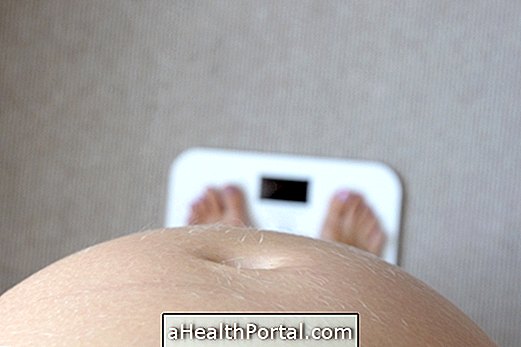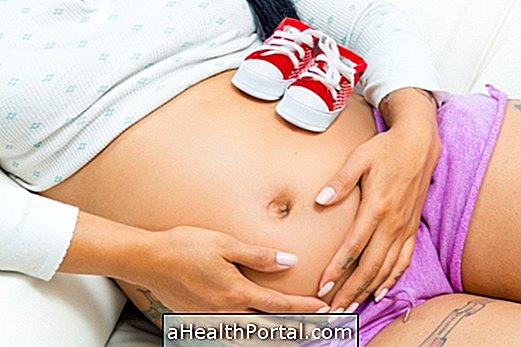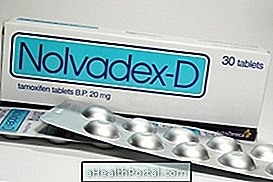Pregorexia is an eating disorder where the pregnant woman refuses to eat, or is always counting the calories of food, and exaggerates in physical exercise for fear of gaining weight, which can endanger her life and that of the baby.
As with anorexia and bulimia, it is common for pregnant women to conceal excessive worry about other people's weight, but their attitudes may make it clear that it is an eating disorder, and that it needs to be accompanied by a psychologist and by a nutritionist. Mainly because foods are important to nourish the baby and ensure its development in a healthy way.
Enter your data and know how much you should gain weight in pregnancy to feel beautiful and not harm your baby:
Attention: This calculator is not suitable for multiple pregnancies.

Signs of Anorexia or Bulimia in Pregnancy
It can be suspected that the pregnant woman has anorexia or bulimia when the following signs are present:
| Anorexia | Bulimia |
| Eat little, refuse food | Periods when he eats a lot, but vomits soon after |
| Weight below ideal in pregnancy | Frequent throat pain |
| Know the calories of foods of color and always be concerned about it | Dental problems such as frequent gingivitis and cavities |
| Always state that you are not hungry | Callus on the fingers |
| Do intense physical activity every day | Go to the bathroom right after eating or drinking |
In any case, it is common for the pregnant woman to be very pleased when someone says, 'It does not look like you are pregnant or have a tummy, ' which often causes distress and worry in mothers who feed properly.
This type of eating disorder can occur in pregnancy or before the woman knows that she is pregnant, and it is always necessary to follow a professional because it is common for pregnant women to believe that their behavior does not affect their health, but they may be underweight or of the expected gestational age.

What to do to ensure baby's health
Feeding the mother during pregnancy is very important so that the baby can grow healthy, so if there is suspicion of anorexia or bulimia, the pregnant should be advised by the nutritionist to know what to eat daily. A psychologist can also help you cope with the difficulty of eating properly by improving the health and well-being of the family.
Generally it is indicated that the pregnant woman makes at least 5 meals daily, always eating different foods so that the baby receives the maximum of nutrients possible. No need to eat for two, but meals should be a little more volume than usual because the woman's body spends more calories to maintain the baby's development. Learn how to make a healthy diet during pregnancy to avoid gaining weight unnecessarily.
Exercises you can do in pregnancy
Exercising in pregnancy is a great way to avoid excessive weight gain at this stage, and it also improves cardiac and respiratory function, which also helps in recovery from childbirth.
If the woman already had physical activity during pregnancy, she could do practically all kinds of exercise, as long as there are no jumps, nor the risk of falling. However, at this stage it is best to take less weight in the gym's bodybuilding class and running is not the best choice for cardiovascular exercise.
The best exercises to practice in pregnancy include Yoga, Pilates, Hydrogynastics and even bodybuilding as long as it is lightweight. See more examples of exercises you can do in pregnancy.























